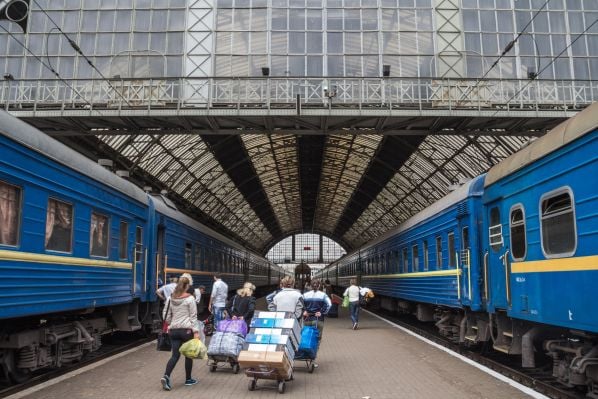UKRAINIAN Railways (UZ) is working with Italian State Railways (FS) on a preliminary feasibility study on the introduction of high-speed rail in Ukraine under a previously signed memorandum of understanding.
“Ukraine is currently undergoing a large-scale restructuring,” said acting chairman of the board of UZ, Mr Ivan Yuryk during a recent Ukrainian-Italian business forum.“We want to get rid of the Soviet legacy both legally and in terms of rolling stock and infrastructure. And that is we need investments to organise services, put assets in order. We need investments to upgrade the locomotive segment, wagon fleet and infrastructure,”
Among the priorities for the state is the introduction of high-speed rail traffic in Ukraine, which Mr Yuryk said is enshrined in the National Transport Strategy of Ukraine for the period up to 2030. Preliminary estimates suggest that the project could cost $US15bn-$US16bn. It is hoped that a draft feasibility study for the project will be received by the end of 2021.
"I must say frankly, at the moment we do not have the technology for high-speed traffic,” Yuryk says. “The maximum speed that we can provide in complete safety mode is 160km / h. Therefore, we are currently in negotiations with our Italian partners on the possibility of launching such a project, studying in detail the materials and opportunities to implement it in Ukraine.”.
He also said that the main goal is not just to implement a separate local project, but to connect with the European network. “Our idea is to make the Ukrainian passenger feel like a European, when you can get on a train in Kiev, Odessa or Lviv, and get off in Warsaw or another European capital,” Yuryk said. “It is very ambitious, it requires significant financial injections. Now we are just at the beginning of this journey. At the moment, our task is to make a feasibility study in partnership with our European colleagues.
"I am confident that cooperation with a wide range of our European partners will have positive results in the near future, in particular, will allow us to learn from the implementation of such projects and attract funding on preferential terms.”.

